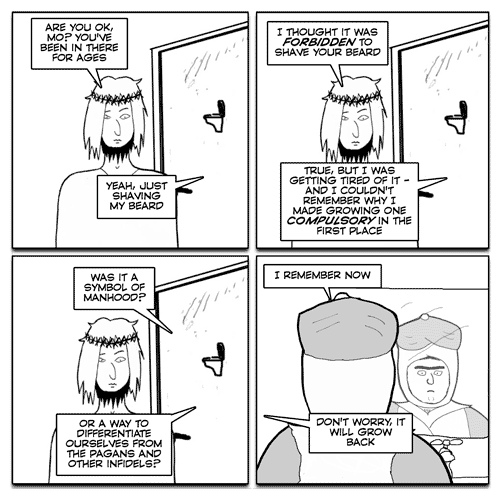Good teachers? We don’t need no stinkin’ good teachers.
Tom Porton is used to drama: Since arriving at James Monroe High School as an English teacher 45 years ago, he has taught and staged plays. Outside, in the Bronx River neighborhood where the school is, there was plenty of drama in the 1980s, when AIDS and crack ravaged the area. His response then was to establish a group of peer educators who worked with Montefiore Medical Center to teach teenagers about H.I.V. prevention. His efforts earned him awards, including recognition from the City Council and the John F. Kennedy Center for the Performing Arts, and led to his induction into the National Teachers Hall of Fame.
So therefore the new principal decided to hassle him into quitting.
Last month he clashed with Brendan Lyons, the school’s principal, who disapproved of his distributing H.I.V./AIDS education fliers that listed nonsexual ways of “Making Love Without Doin’ It” (including advice to “read a book together”). This month, he said the principal eliminated his early-morning civic leadership class, which engaged students in activities such as feeding the homeless, saying it was not part of the Common Core curriculum. Mr. Porton was already skeptical of that curriculum, saying it shortchanged students by focusing on chapters of novels and nonfiction essays rather than entire works of literature.
So he’s leaving.
Mr. Porton has been teaching and coordinating student activities long enough to see Monroe go from a large urban high school to one housing several smaller schools, including his, the Monroe Academy for Visual Arts and Design. Mr. Lyons — who repeatedly replied “no comment” to questions during a telephone conversation — arrived at the school at the start of the academic year. A previous tenure at a Manhattan high school was marked by his replacing paper hall passes with toilet plungers, which students used to wreak havoc on property and one another.
Um…what? Was that a move to shame students for having to pee? Captain Queeg in the Bronx?
H.I.V. and AIDS may have faded from the public mind, but they remain a danger in places like the South Bronx, especially among young blacks and Latinos. Mr. Porton said the school has failed to meet Department of Education mandates to educate students about the diseases, making his work all the more necessary.
Mr. Lyons, who would not say if the school met the mandates, never explained his objections to Mr. Porton. At the start of this semester, Mr. Porton said, the principal eliminated the 40-student leadership class because he said it was not part of the standard curriculum, even though the class met before the formal start of the school day. Because of that, combined with Mr. Porton’s disappointment over the standardized test frenzy that rules in many schools, he chose to leave.
“School is not pleasant, the way it was when I started,” he said. “They pay lip service to the social and emotional well-being of the child. My generation of teachers had a mind-set about how to teach a child. Today, many young teachers see teaching as a way to kill time on the way to something else.”
Selling real estate, probably.
So the students lose and toilet plunger guy wins.
















